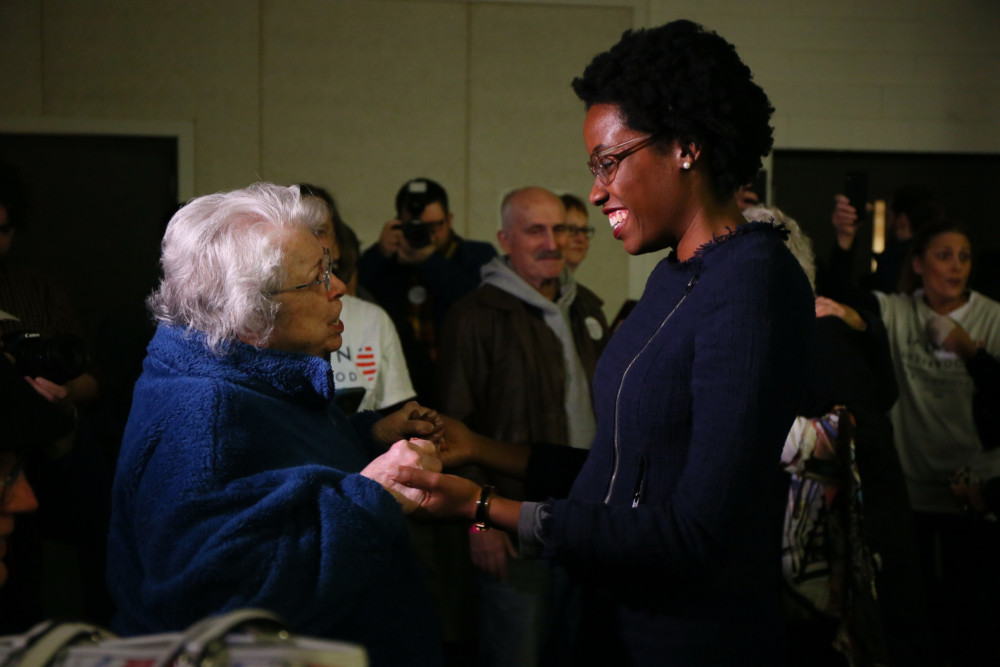By Heidi Stevens
Chicago Tribune
WWR Article Summary (tl;dr) Heidi Stevens introduces us to some of the new female leaders ready to change the game in Washington.
Chicago Tribune
Congress suddenly looks a lot more like America.
Or at least it will come January.
As of Wednesday, Nov. 7, a record number of women are projected to win seats in the U.S. House of Representatives, with CNN forecasting 96 women will claim victory in their House races, 31 newly elected, 65 as incumbents. In addition, at least 13 women won Senate seats in Tuesday’s midterms.
A women’s march, indeed.
Say hello to Lauren Underwood, the Democrat from Naperville, Ill., who unseated four-term Republican incumbent Randy Hultgren and became the first African-American woman to win Illinois’ 14th District.
Say hi there to Alexandria Ocasio-Cortez, who won her New York district Tuesday and, at age 29, will become the youngest woman ever in Congress.
Let’s congratulate Michigan Democrat Rashida Tlaib and Minnesota Democratic-Farmer-Labor Party’s Ilhan Omar, who will be the first Muslim women to join the ranks of Congress in January.
It’s nice to meet Democrats Deb Haaland and Sharice Davids, the first Native American women ever elected to Congress. Haaland hails from New Mexico. Davids is from Kansas, and will also be the first openly LGBTQ member of Congress from Kansas.
Let’s give a shoutout to Republican Rep. Marsha Blackburn, just elected as Tennessee’s first female senator.
And say hi to Veronica Escobar and Sylvia Garcia, the first Latinas to represent Texas in the U.S. House of Representatives. Escobar is a former El Paso County judge, and Garcia is a state senator from Houston.
And that’s just a start.
But what a beautiful start it is.
It’s tempting to look at the wave as a rebuke to President Donald Trump and his loathsome views on women, from his bragging about grabbing them by the pussy to the litany of reprehensible names, dog, horseface, pig, low IQ, he assigns the ones who cross him.
But these wins are also an embrace. A move toward something, not just away from it.
And that something is a government that looks and lives a lot more like the people it represents.
When I think about the importance of representation, I frequently go back to a moment in “Lean In,” when Sheryl Sandberg writes about the time she worked at Google and realized, belatedly, that the company lacked parking spots for pregnant women. Her realization occurred when she was, herself, pregnant, battling morning sickness and painfully swollen ankles and feet, and trying to rush from her car to a meeting.
“To this day, I’m embarrassed that I didn’t realize that pregnant women needed reserved parking until I experienced my own aching feet,” she writes. “As one of Google’s most senior women, didn’t I have a special responsibility to think of this? But … it had never occurred to me.”
Google’s senior men had a responsibility to think of their pregnant employees too. Of course they did. But we all have blind spots.
We’re informed by our experiences walking through the world in our body, our skin color, our gender expression, our economic status. We can listen to and learn from the experiences of others, but that’s not always enough.
We need representation.
Google added pregnancy parking after Sandberg brought it up to her bosses. “Having one pregnant woman at the top,” she writes, “made the difference.”
Having more than 100 of them in Congress will too.














































































































































































































































































































































































